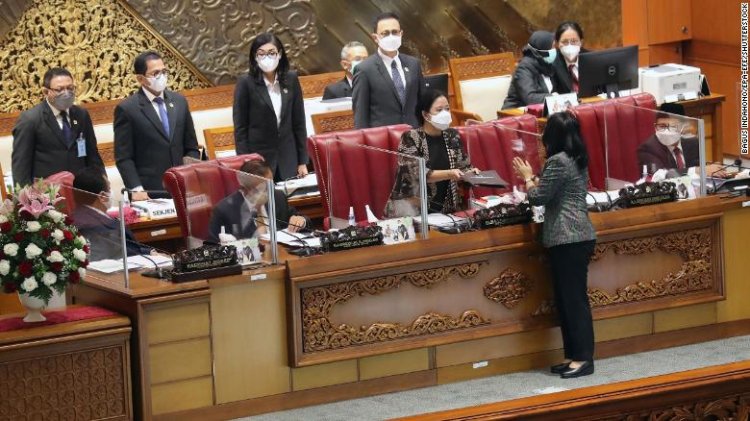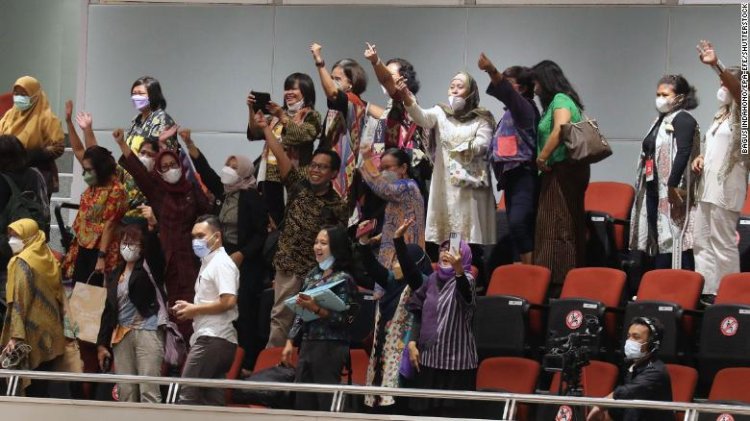Indonesia approves a major bill against sexual abuse, over conservative resistance.
Sexual abuse accusations have been on the rise in Indonesia, where the lack of a dedicated legal framework has made prosecuting sex crimes difficult, and victims' fears of being shamed during questioning have stopped many from speaking out, according to advocates.

On Tuesday, Indonesia's parliament enacted a long-awaited bill to combat sexual violence. The bill aims to provide a legal framework for victims to seek justice in a country where sexual abuse is generally treated as a private affair.
After six years of deliberation, a majority of legislators in parliament voted in favor of the bill, overcoming resistance from some conservative organizations in the world's largest Muslim majority country.
"We hope that the adoption of this law would bring an end to incidences of sexual violence," House Speaker Puan Maharani stated.
Activists have largely praised the measure, however, some have criticized its narrow reach, which includes only a few sex crimes and leaves out a specific clause on rape, which the government has promised will be included in future legislation.
"This is away, a legal specialist at Jentera School of Law who has worked with sexual abuse victims, said, adding that the definitions of rape now covered by the criminal code should be clarified.
Sexual abuse accusations have been on the rise in Indonesia, where the lack of a dedicated legal framework has made prosecuting sex crimes difficult, and victims' fears of being shamed during questioning have stopped many from speaking out, according to advocates.

The law's final form includes prison penalties of up to 12 years for crimes of physical sexual assault, both inside and outside of marriage, 15 years for sexual exploitation, nine years for forced marriage, including child marriage, and four years for disseminating non-consensual sexual content.
It said that convicted abusers must pay reparations and that authorities must offer victims treatment.
Earlier versions of the bill would have included abortion as well as a stricter definition of what constitutes rape.
A decade ago, the National Commission on Violence Against Women (Komnas Perempuan) and civil society organizations suggested legislation, and four years later, a bill was submitted to the parliament.
President Joko Widodo instructed his government in January to hurry new legislation aimed at making it simpler to assemble cases and achieve convictions.
The Islamist Prosperous Justice Party, a member of parliament, had protested the law, claiming that it should regulate extramarital sex and calling for a ban on sexual interactions based on "deviant" sexual orientation.

 Boakyewaa Lawrencia
Boakyewaa Lawrencia 



































